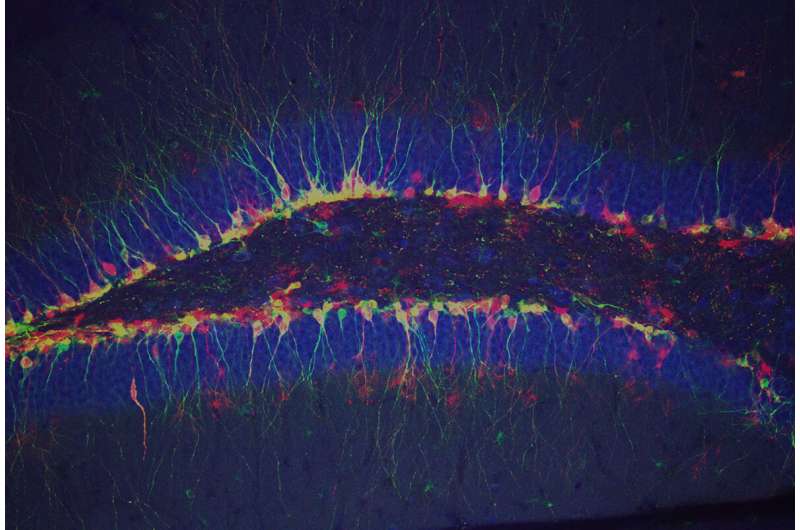Excitatory neural receptors aid development of adult-born neurons

A unique interaction between an excitatory neural receptor and a chloride transporter are critical for development of adult-born neurons in the dentate gyrus, according to a Northwestern Medicine study published in Cell Reports.
A region of the hippocampus known as the dentate gyrus is one of the few locations in the brain where new neurons are continuously born. The current study sheds new light on some of the mechanisms required for proper development and synaptic integration of the adult-born neurons, according to Anis Contractor, Ph.D., professor of Neuroscience and senior author of the study.
"When we genetically eliminate these receptors, specifically in the newborn neurons, they develop differently," Contractor said.
Yiwen Zhu, a student in the Driskill Graduate Program in Life Sciences (DGP), was lead author of the study.
The dentate gyrus is involved in episodic memory and the ability to differentiate between similar patterns in the environment.
"For instance, if you walk into a room for the first time, even if it has similar elements, the ability to recognize it's a different room from those you've seen previously is dependent on activity of neurons in the dentate gyrus," Contractor said.
Further, the dentate gyrus generates new neurons that are added to brain circuits throughout the life of mammals, including humans. This process—known as neurogenesis—is critical for many functions of the hippocampus including memory, mood and cognition.
Early in their development, adult-born neurons generated in the dentate gyrus receive strong inhibitory signaling, and only adopt their eventual connections to excitatory synapses later. However, excitatory receptors are present during this early development, but without any actual signaling, the function of this remained unknown.
In the current study, Contractor and his collaborators used retroviruses to label new neurons created in the dentate gyrus, allowing them to accurately birth-date and track them to establish a profile of their developmental stages.
Next, investigators ablated the excitatory kainate receptor early in development of these adult-born neurons, observing that they developed quite differently. Particularly during a critical period, they never developed their early inhibitory profile due to disruption of an interaction between the kainate receptor and a chloride transporter.
This interaction helps prime the neurons for inhibitory signaling, and without this priming their development is altered, according to Contractor.
"Not only is the kainate receptor not working as an excitatory receptor, but it's affecting inhibition onto these new neurons," Contractor said.
When the investigators tested mice with the kainate receptors knocked out in behavioral tests, they found that they had difficulty discriminating between similar patterns.
In humans, disruption of neurogenesis in the dentate gyrus has been associated with symptoms of aging and depression. While there is still little agreement in the scientific community about how exactly neurogenesis may or may not contribute to certain conditions, studies such as this one help fill in the blanks on adult neurogenesis, Contractor said.
More information: Yiwen Zhu et al, Kainate receptors regulate the functional properties of young adult-born dentate granule cells, Cell Reports (2021). DOI: 10.1016/j.celrep.2021.109751





















